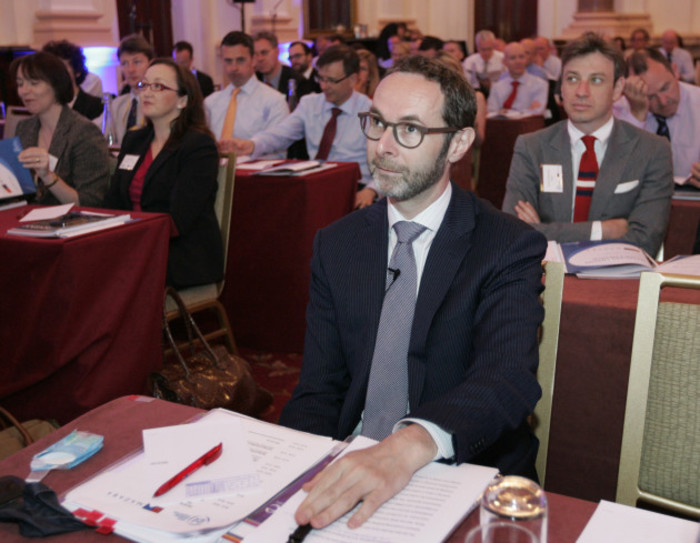High 'churn' and trouble finding new recruits have left the Central Bank short on staff
The financial regulator is likely to fall well short on its recruitment targets.
THE CENTRAL BANK says a high “churn” rate among its employees and trouble in recruiting outside staff means it will likely fall well short of its recruitment targets for the year.
The regulator, which recently moved into new offices in Dublin’s docklands, had planned to bolster its ranks by 200 staff in 2017, however it only managed to add the equivalent of five full-time employees in the first three months of the year.
According to minutes from the Central Bank’s committee meeting in late April, it was now struggling to find extra staff in a “challenging recruitment environment”.
At the end of last year, there were just under 1,600 full-time equivalent staff on the regulator’s books – up from 1,364 in 2014.
Central Bank human resources director Liz Joyce told the committee that 149 advertised roles were filled at the organisation during the first quarter.
However more than half of the roles were internal hires – creating further vacancies at the regulator.
Meanwhile, the staff turnover rate at the Central Bank currently stands at 7%, with the level of “churn” leading to only a small net increase in the workforce.
The meeting minutes noted it was “not feasible to expect all vacancies would be filled this year” and that a strategy has been developed to help boost staff numbers at the Central Bank.
 The Central Bank's new office on North Wall Quay
The Central Bank's new office on North Wall Quay
The minutes also revealed that roughly 70 staff are on long-term leave from the organisation.
A spokeswoman for the Central Bank told Fora that as of the end of May, there has been a net increase of 20 full-time staff.
Ongoing issue
Over the past several years, the Central Bank has lost a number of key staff, including deputy governor Stefan Gerlach, who left in 2015, head of banking Fiona Muldoon, who has since joined insurance firm FBD, and head of enforcement Peter Oakes.
Earlier this year, deputy governor for financial regulation Cyril Roux also resigned from his role to take up a new position in the private sector. Former governor Patrick Honohan announced his early retirement in 2015.
 Cyril Roux
Cyril Roux
Last year, Roux said that the recovery in the financial sector has increased the pressure on the Central Bank to retain its key staff.
He said the gap between the wages available to someone in the private sector and those working for the bank has grown. The average salary at the Central Bank was €61,020 last year, down from €62,345 in 2013.
In recent years, the Central Bank has launched initiatives to retain key staff and offered payments to staff to keep them at the organisation.
The Dáil Public Accounts Committee heard last year that nearly €450,000 was given to key staff to convince them to stay. These 29 employees were earning over €100,000 annually.





